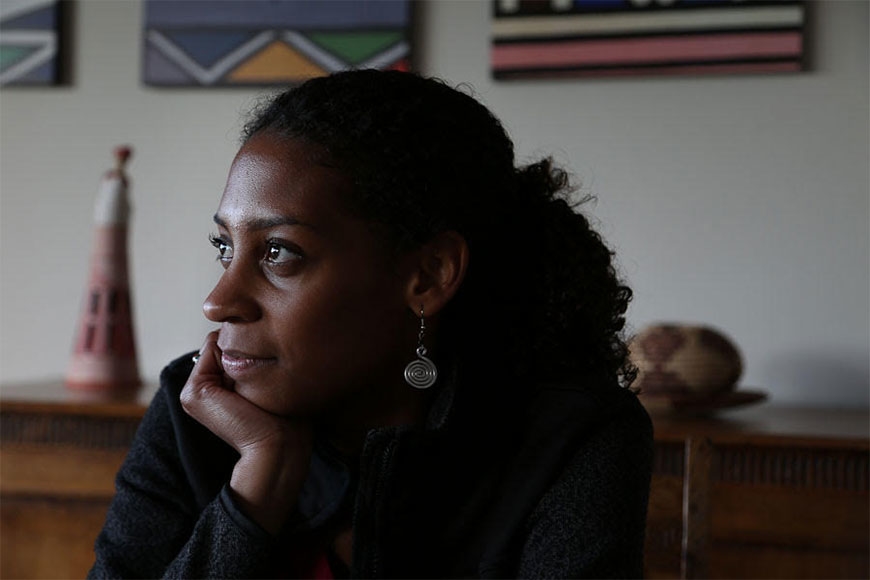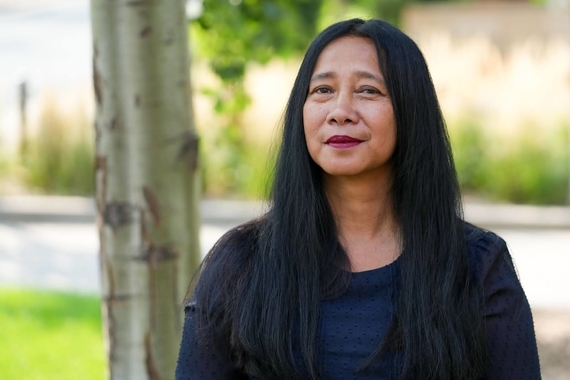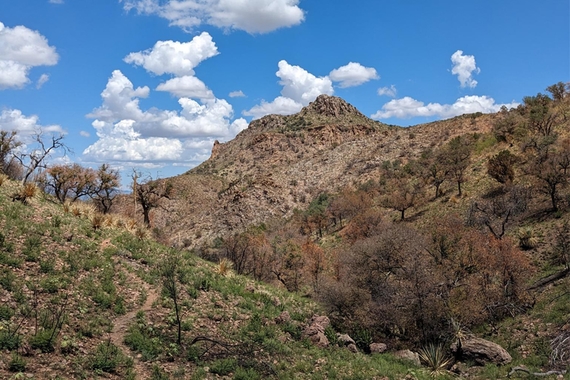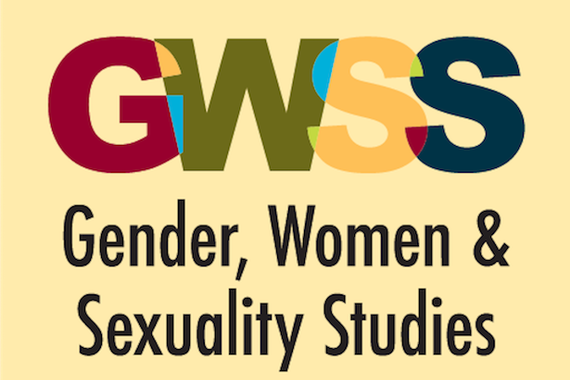Moriah Shumpert: A Scholar-Activist
What brings you to the University of Minnesota? What do you enjoy about being a part of the GWSS department?
What initially drew me to UMN, and more specifically the GWSS department, was how easily I could find support for my research interests here. I completed my BA and MA at a smaller university where many of the fields I draw heavily from—such as African/African American studies, Indigenous studies, sexuality studies, and labor studies—had little representation.
At UMN I find that, not only are these fields represented, but the faculty and students engaged in these topics are doing impressive work to push the boundaries of today’s scholarship. That is really exciting to me. I was very attracted to the Race, Indigeneity, Gender & Sexuality Studies Initiative (RIGS) and the Interdisciplinary Center for the Study of Global Change (ICGC) as potential complements for my own interdisciplinary work.
I also felt that GWSS’ commitment to social justice and the sense of community I experienced during my recruitment visit, particularly among the graduate student cohort, would be a great environment in which to continue my own scholar-activist work. I look forward to opportunities to study with core graduate faculty members to deepen my explorations of Black and Indigenous feminisms, post/decolonial studies, informal economies, and transnational feminist activism.
How have your studies up to now provided a foundation for your graduate work in feminist studies?
As an undergraduate student, I double majored in sociology and women’s studies. I also hold an MA in humanities with a graduate certificate in women’s studies. Feminist theory is an integral part of my engagement with each of these fields. My existing research has focused on critical intersections of race, gender, class, and labor within a global development framework and is deeply influenced by the anti-racist, anti-capitalist, post/decolonial, and transnational work of feminist scholars, including Patricia Hill Collins, Chandra Mohanty, and Gloria Anzaldua.
These foundations have guided me to explore how the lived experiences of women, people of color, queer persons, and other marginalized groups can produce knowledge about systems of oppression and guide our efforts towards a more just future. My humanities and sociology backgrounds have shaped my use of qualitative research methods to explore these topics through narrative collection, ethnography, and participant observation. I look forward to continuing my work in the fields of feminist ethnography and oral history as a doctoral student.
What inspires you to pursue an advanced degree in feminist studies?
After my master’s program, I spent time working as a labor organizer in south Florida and completed an internship at the International Labor Organization in Geneva, Switzerland. These experiences sparked my desire to think—and write—more deeply about what was happening in the grassroots movements I was participating in and how these movements were shaping and being shaped by the international policies I was helping to promote and monitor.
I felt that continuing my graduate work in feminist studies was the best way for me to explore the connections between grassroots activism, feminist transnational solidarity, and policy making. Working with the transnational movement for domestic worker rights has also motivated me to find new ways to generate research in support of collective struggles for justice. I draw a lot of inspiration from my experiences as a community organizer and my ongoing relationships with the women, queer, and trans activists of color that make up my organizing family.
I'm also motivated to share my love of the research process and support new generations of scholars. In the last year, working in the classroom as an instructor has become a new source of inspiration and an opportunity to learn about feminist pedagogy in real time. Reexamining the work of my favorite theorists as my students are exploring them for the first time has energized me, and I'm very excited to be a student again.
This interview was conducted by an undergraduate student in CLAgency. Meet the team.



